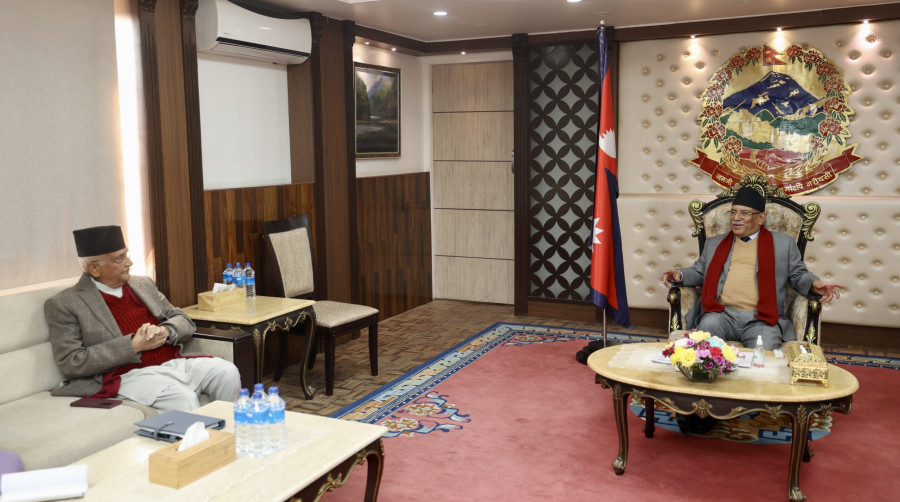Politics
Differences between ruling coalition and main opposition likely to grow
The Business Advisory Committee on Friday failed to agree on the endorsement of the bill to amend the Constitutional Council Act after the UML sought revision.
Binod Ghimire
The main opposition CPN-UML’s refusal to support the endorsement of the amendment bill to the Constitutional Council Act is likely to escalate its friction with the ruling coalition.
The government wanted to endorse the bill and form a Special Committee through Friday’s meeting of the lower house. A meeting of the Business Advisory Committee held prior to the House meeting on the day failed to agree on the endorsement of the bill after the UML sought a revision in one of its provisions. The parties didn’t introduce the agenda of formation of the Special Committee to find a meeting point in the Enforced Disappearances Enquiry, Truth and Reconciliation Commission Act following differences over the amendment in the Constitutional Council Act.
As a result, the winter session of Parliament was prorogued without endorsing a single bill. Leaders of the ruling parties have said the UML’s refusal was a breach of the April 24 agreement between them and the main opposition.
A meeting of the top leadership from the Nepali Congress, CPN (Maoist Centre) and the UML on the day had agreed for the endorsement of the amendment bill to the Constitutional Council Act and the formation of a Special Committee to decide on the amendment to the Transitional Justice Act. The ruling parties agreed to give the leadership of the three parliamentary committees, including a joint committee and the Public Accounts Committee, to the UML in return for its support to endorse the bills. They also agreed to have five lawmakers from the UML in the 15-member Parliamentary Hearing Committee.
Now the ruling parties say they are not obliged to follow the agreement as the UML has backtracked on the agreement to endorse the bill to amend the Constitutional Council Act. “Now, we are not obliged to give the leadership of the three parliamentary committees to the UML,” Hitraj Pande, the Maoist Centre chief whip, told the Post. “It is the UML that has breached the agreement.”
Now the UML is likely to get the leadership of only the Public Accounts Committee among the 10 thematic committees under the House of Representatives and two joint committees.
UML leaders, however, say they didn’t stop the endorsement of the bill. Padam Giri, the party’s chief whip, said his party only sought an amendment in one of the clauses of the bill to amend the Constitutional Council Act. “We agreed to endorse the bill on fast track. That didn’t mean we would agree on whatever provisions the bill had,” Giri said. “The bill would have easily been endorsed were the ruling parties ready to revise clause 10.”
The clause 10 says the chairperson of the Council, which is the prime minister, and a majority of the members present at the meeting can pick nominees for appointment to the constitutional bodies. Giri said the provision needs to be revised because it envisions that the final decision on the recommendation by the Constitutional Council would rest with the prime minister.
“We wanted that a majority of the members in the council should get the authority to take the decision whether the prime minister agrees or not,” Giri said.
The six-member council led by the prime minister includes the Speaker, deputy Speaker, chairperson of the National Assembly, Chief Justice and the leader of the main opposition. When nominating a Chief Justice, the law minister participates in the Council’s meeting in place of the head of the judiciary.
The Friday meeting of the lower house has already formed the thematic committees whose meetings will be called after the Speaker calls their coordinating meeting. The senior-most members will chair the respective committees until they elect their chairpersons. “It is up to the ruling parties whether or not they want our support in Parliament,” Giri said.




 10.12°C Kathmandu
10.12°C Kathmandu















